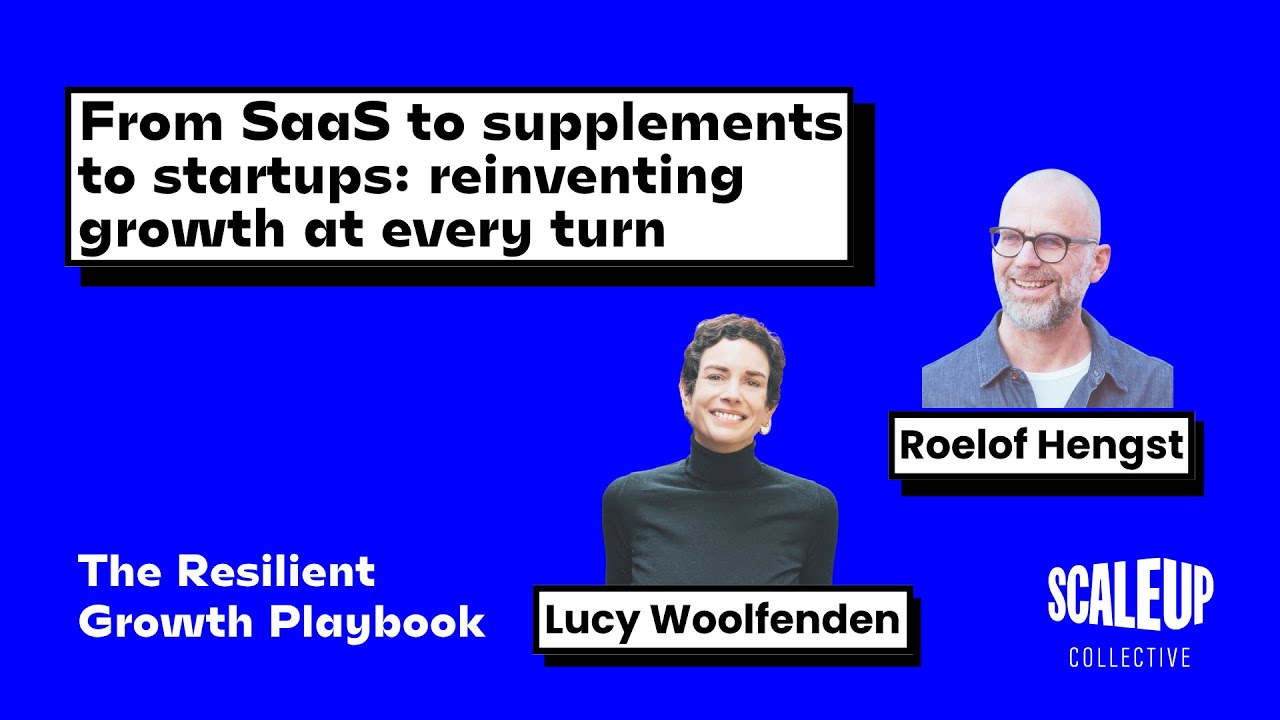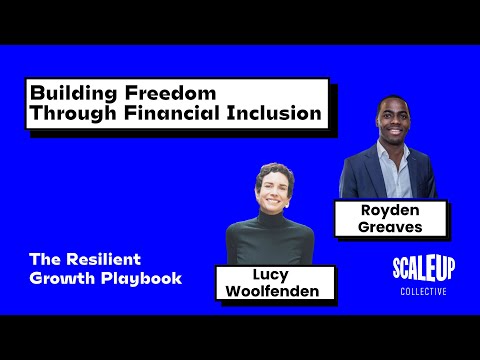Why demand generation beats lead generation when you're still finding product-market fit

Recently, I sat down with Anthony Cosgrove MBE, founder of Harbr and Syntheticr, for our Resilient Growth series. Anthony's journey from Ministry of Defence analyst to HSBC's Financial Intelligence Unit to starting two companies offers some brilliant insights for tech founders navigating today's funding landscape.
What struck me most about our conversation was Anthony's refreshingly honest take on the iterative learning process that every founder goes through - and how shifting from lead generation to demand generation changed their trajectory.
The counter-intuitive move that cut costs and improved quality
Like many B2B startups, Harbr Data initially focused heavily on lead generation - gated content, paid search, nurturing prospects through lengthy sales funnels. The problem? Market timing was off.
"We were trying to find and encourage people through gated content, paid search, all that stuff, to find us, capture their contact details, and then nurture them. And the market timing just wasn't right for that."
The shift to demand generation - ungating content, focusing on education rather than capture - seemed counterintuitive. But the results speak for themselves:
- Costs went down significantly because the focus shifted from dragging people in, to meeting them where they already were
- Market credibility increased because people could see they knew what they were talking about
- Lead quality improved dramatically as prospects arrived ready for a proper conversation rather than basic education
"Instead of asking about basic concepts, they understand all those concepts and what they've really honed in on is, tell me how you do this thing because I know that that's important to me."
Understanding market context is everything
One of Anthony's most valuable insights centres on reading the room, understanding not just your product-market fit, but the broader market context you're operating in.
His framework is simple but powerful:
Growth-at-all-costs makes sense when:
- Your competitors are prioritising rapid growth
- Funding is readily available to support that approach
- The risk of being overtaken is existential
Capital efficiency makes sense when:
- The market is preserving runway
- Funding is constrained
- The focus is on sustainable metrics rather than pure growth
"If you've got a historically well-funded startup that has product-market fit, but isn't doing AI, you're still in a sort of capital efficiency, preserve runway, demonstrate your metrics, grow in a more sustainable way situation. If your startup is in the AI space where there is a huge amount of funding, you do need to be driving as much growth as you possibly can."
The key is that these markets exist simultaneously today, your strategy needs to match your specific context.
Building trust in enterprise sales: the founder advantage
Having come from large organisations (MoD, HSBC), Anthony understands something crucial about enterprise sales that many founders miss: it often comes down to personal trust.
"When you start a business, if you encounter the founder of a business, then you expect that person is going to be able to get things done and make things happen. And if you trust them, then that's kind of half the battle."
For complex enterprise software with long sales cycles, the decision often isn't just about the technology - it's about whether the buyer trusts you as a partner when things inevitably get complicated.
This is where founder-led sales has a distinct advantage over traditional sales teams, especially in the early stages.
The security vs innovation balancing act
Having built financial crime detection systems at HSBC, Anthony brings a unique perspective to the eternal tension between security and innovation.
His team's initial instinct was to "overbake" security - forcing users to be as secure as possible without options for flexibility. They had to unpick several early decisions where security hindered usability.
The lesson here was that security should be robust, but proportionate. As Anthony puts it:
"Sometimes less secure was fine. It was secure enough, and that was okay."
The key is having frameworks to turn security decisions into numbers, allowing for informed trade-offs rather than blanket policies.
Synthetic data: solving the privacy puzzle
Both of Anthony's companies tackle the same underlying challenge: how do you get value from data when security and compliance are big challenges?
Harbr Data builds private data and AI marketplace platforms - think secure collaborative exchanges that operate within and between organisations.
Syntheticr generates synthetic data to test, train and benchmark financial crime models - solving the problem that real financial crime data is often too sensitive, too biased and too limited to solve.
What's fascinating is how Syntheticr emerged organically from customer needs rather than a grand vision:
"We didn't dream it up. There was a need which we met, and then other people started asking us for the product because they had a different use case and it kind of then went through word of mouth."
The best product development stories often follow this pattern - solve a real problem well, and adjacent opportunities reveal themselves.
Key takeaways for founders
1. Match your strategy to market context Don't just follow what worked for others - understand whether you're in a growth-at-all-costs or capital efficiency environment
2. Consider demand gen over lead gen early-on If you're still finding product-market fit, an education-first approaches often work better than lead capture
3. Lean into founder-led sales for enterprise Your personal credibility and ability to build trust can be your biggest competitive advantage
4. Be proportionate with security Robust doesn't mean inflexible - build frameworks for making informed trade-offs
5. Look out for adjacent opportunities Sometimes your next product comes from solving problems your existing customers bring to you
Looking ahead
Anthony's currently launching Harbr Data’s new website and scaling both businesses with very different approaches - Harbr Data is focused on proven demand generation tactics, while Syntheticr is exploring how to build brand recognition scalably with limited resources.
It's a masterclass in running parallel strategies based on where each business sits in its lifecycle.
If you want to dive deeper into Anthony's approach, you can find him on LinkedIn or check out the new Harbr Data website!
What resonated most with you from Anthony's journey? I'd love to hear your thoughts.
If you're wrestling with the lead gen vs demand gen question in your own business, drop me a line - always happy to chat through the trade-offs.






